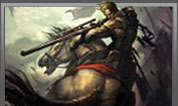Two questions: 1. We have not had a sci-fi one shot since Quantum Shadows in 2020. Are you working on any new sci-fi novels? 2. I seem to recall from an interview that before you published any of your sci-fi short stories, you had published some of your poetry. Can you tell me where you poetry was published?
At present, I’m not working on any SF novels, partly because I haven’t had any good ideas that I found personably workable and partly because my publisher isn’t all that enthused about singleton SF novels (at least from me). My poetry was published in VERY small magazines that may not even exist today, including Jean’s Journal, Konglomerati, The Red Balloon, Poetry Today, and the Fountain Valley Literary Review, all in issues published before 1979.





